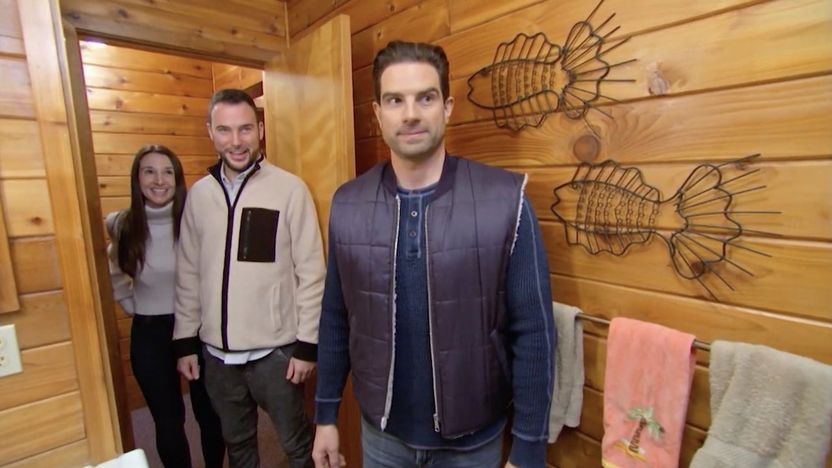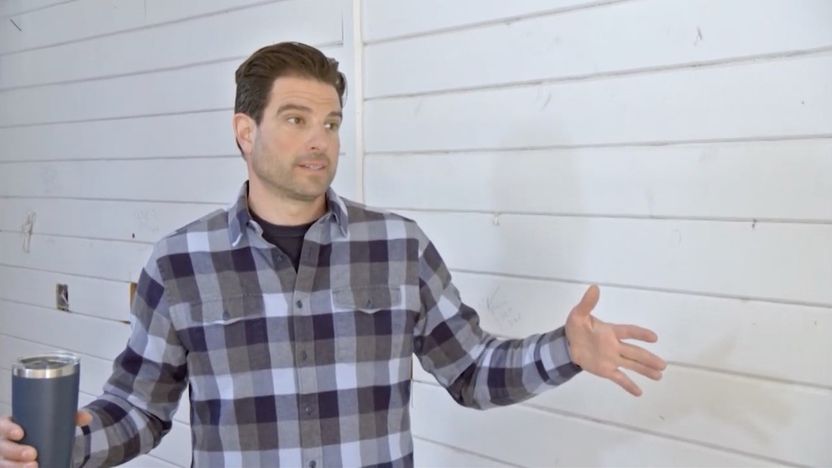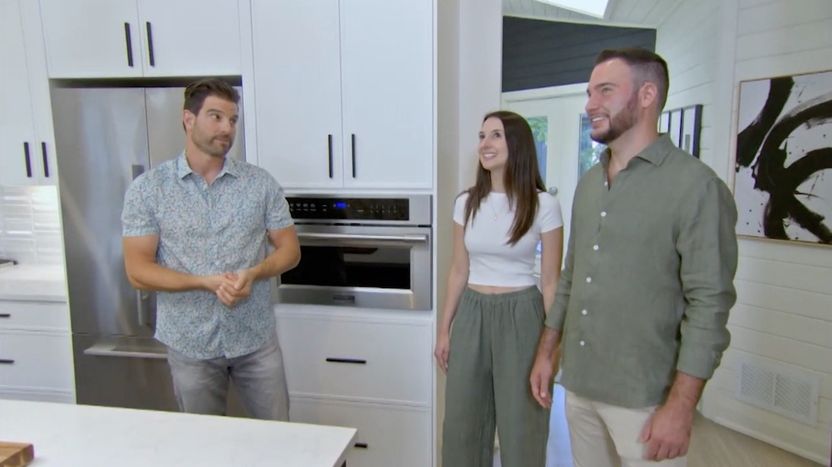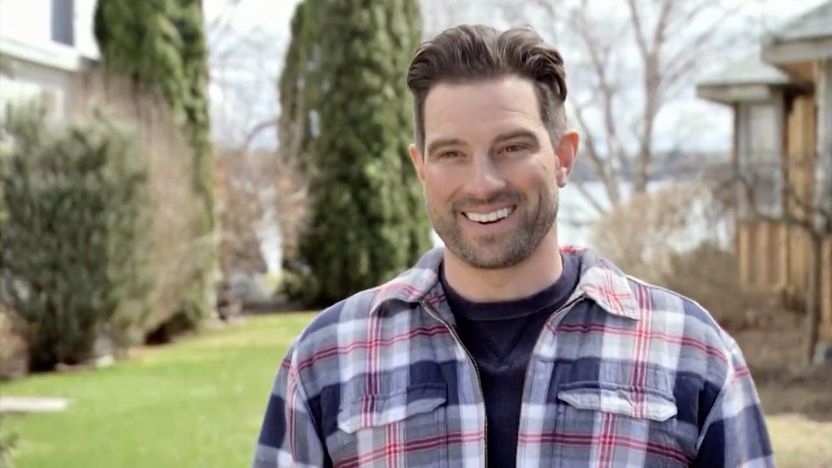
HGTV
Just in time for the summer travel season, Season 4 of “Vacation House Rules” returns, with Scott McGillivray sharing his secrets on how to turn a beach house, cabin, or other scenic property into a money-making rental.
A vacation property investor himself, McGillivray believes it’s the smartest move to make in today’s housing market.
“The short-term rental market is currently the fastest-growing segment in real estate investing,” he tells Realtor.com®.
Interested to learn exactly how to prep a property for maximum rental profits, we got McGillivray to reveal which upgrades bring the best return on investment, where to cut back, and just how regular people can break into the vacation rental business today.

HGTV
What makes a vacation rental property a smart investment, particularly now?
We know that with the uncertainties—interest rates, inflation, and the markets—real estate has really been the champion of all investments for the last 20 years. I think that is no longer a secret, and people are interested in investing.
When it comes to investing in real estate, short-term rental properties are profitable, but they’re also quite aspirational.
People think, “I’ll rent it for a few years, and then I’ll retire there” or “We’ll use it ourselves.” This has become a really popular category for a lot of people who maybe five years ago didn’t even know about this type of property.

HGTV
What do you say to those who are interested in investing but don’t feel like they have enough money?
If one of your goals is to be wealthy or financially independent, then real estate needs to be a consideration. My first goal when I was in my early 20s was to establish wealth, so my first home was an investment property.
I lived in one of five bedrooms in a house, and I rented out the other four bedrooms, which covered all the expenses, and it was a good lesson for me. I lived in the smallest room in the basement because all the other ones were more profitable.
My advice to folks that feel like home ownership is out of reach [is] that dream home might be out of reach, but your first home is never out of reach if you’re willing to do it smart.
You’ve got to make a few sacrifices early in order to have the great gains later. You might need to move a half-hour outside of your primary destination. You might need to buy a smaller home than you wanted or have roommates or have a duplex or triplex and rent a portion of it out.
We have investors on our show who have never owned homes before, and they started with a short-term vacation rental, and they rent it out to make money so that they can afford to eventually buy a home.
Second homes can be a source of income, but they also come with expenses. What advice do you have for homeowners who are leery of getting in over their heads?
Don’t panic! It’s all going to be OK—we’ve got a way around this. You’ve got taxes, insurance, repairs, and maintenance. You may have mortgage expenses on it. Being flexible with short-term vacation rentals allows you to have a cash injection when you need it.
It’s like you’re running a mini hotel, so if you own a secondary home and you feel burdened by some of the expenses, you can rent it [out] for a week, two weeks, a month.
The rule that I always say is one week’s worth of rentals should be able to generate enough money to support one month’s worth of expenses. So if you had a place and you rented it [out] for 12 weeks of the summer, that should pay for 12 months of expenses.

HGTV
What do you look for when searching for the perfect rental property to purchase?
I look for profitability. You invest where returns are best. When it comes to short-term rentals, the real key is having either something that’s within two hours of where you live if you’re going to be doing some of the maintenance yourself or having a great property manager in place.
Any tips for crafting a catchy listing description that encourages reservations?
Your property should have a brand. I always come up with a theme or a name for the property, like “The Organic Oasis” or “The Luxury Lodge.” I love a good alliteration; I just feel like it sounds legit.
Make sure [the name] is appropriate for the type of property. So if you have “The Beachside Abode,” it’d better be a beachside property.
What rental home features have the best return on investment?
Bedrooms is probably the first filter that people use when searching for a vacation property. They know how many people they’re traveling with, so if your property doesn’t have the capacity, it doesn’t even make the first filter. That would be the first thing to look at.
Do you have enough bedrooms, bathrooms, and common spaces to accommodate the amount of people you’re marketing to? And if you do, then there’s definitely profit maximizers out there, like hot tubs and saunas. Those really extend the rental season for a lot of fringe properties, and people pay extra. People choose a hot tub property over a non-hot-tub property nine times out of 10.
What features aren’t worth spending money on?
When prepping a property for a vacation rental, you want to stay away from worrying too much about storage, lower levels, or basements. Basements don’t add a lot of value to these vacation rentals.

HGTV
Once a rental property is up and running, how often should it be renovated?
A proper renovation should be relevant for 15 to 20 years. That doesn’t mean there’s no maintenance in between. There’s going to be paint touch-ups; you may need to replace some fixtures or faucets. But anything major like electrical, plumbing, cabinetry, flooring—you’d better have a 15-year life expectancy on that or you’re just not getting the proper runway out of it.
What’s next for the short-term rental home market?
There is actually another evolution going on, which is the tech side of things—a lot of upgrades to manage properties remotely. There [are] so many different things that I can control from my phone, that I don’t have to be there to let people in, or when they leave to even change the door code, turn off lights, turn the temperature up before somebody gets there, turn the hot tubs on or off. It’s actually quite convenient now to work in this space.
“Vacation House Rules” airs Saturdays at 9 p.m. on HGTV.
The post Exclusive: Scott McGillivray of ‘Vacation House Rules’ Explains How the Rental Business Is a Smart Move appeared first on Real Estate News & Insights | realtor.com®.
